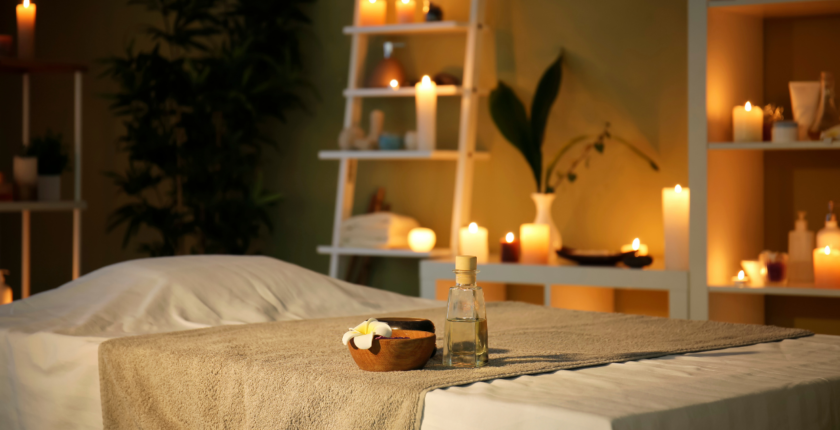The Definitive Guide to the Role of a Beauty Therapist
In today’s ever-evolving beauty industry, the role of a beauty therapist has become increasingly crucial. These experts not only possess the skills needed to enhance physical appearance but also contribute significantly to the overall well-being of their clients. In this definitive guide, we will explore the diverse responsibilities of a beauty therapist, the essential skills required to excel in the field, and their profound impact on clients’ self-esteem and confidence.
Understanding the Beauty Therapist’s Role:
1. Client Consultation:
A beauty therapist’s journey begins with a thorough client consultation. This crucial step involves assessing the individual’s specific needs, understanding their expectations, and providing appropriate recommendations. By cultivating a comfortable and open atmosphere, beauty therapists can build trust and establish long-term relationships.
2. Skincare Treatments:
One of the core responsibilities of a beauty therapist is to provide facial and skincare treatments tailored to each client’s unique requirements. They possess extensive knowledge of various skin types, conditions, and suitable products, enabling them to offer professional advice and create personalized treatment plans. By performing treatments like facials, peels, and massages, beauty therapists strive to improve the overall complexion and rejuvenate their clients’ skin.
3. Body Treatments:
In addition to facial care, beauty therapists excel in body treatments that promote relaxation, improved blood circulation, and detoxification. From body scrubs and wraps to deeply relaxing massages, these professionals apply their expertise to offer both physical and psychological rejuvenation to clients.
4. Hair Removal Techniques:
Skilled in various methods of hair removal, beauty therapists expertly perform procedures such as waxing, threading, and laser hair removal. Their meticulous approach ensures effective and safe hair removal, leaving clients feeling confident and satisfied.
5. Nail Care:
Beauty therapists are also well-versed in nail care and provide services like manicures, pedicures, and nail enhancements. Their vast knowledge of nail health and hygiene enables them to ensure optimal nail care and address any concerns effectively.
Essential Skills for Beauty Therapists:
1. Technical Expertise:
Beauty therapists must acquire a wide range of technical skills through accredited training programs. These encompass product knowledge, treatment techniques, and understanding the latest advancements in beauty therapy. Continuously updating their knowledge is crucial to meet the changing needs of clients and stay ahead in the industry.
2. Excellent Communication:
Effective communication is paramount in the beauty therapy profession. Beauty therapists must actively listen to clients, comprehend their desires, and accurately convey treatment options. Clear communication ensures that clients leave satisfied, knowing their needs were understood and fulfilled.
3. Empathy and Sensitivity:
Providing beauty therapy involves more than just physical treatments. It requires empathy and the ability to understand the emotional needs of clients. A compassionate beauty therapist can build rapport, offer emotional support, and create a safe space where clients feel comfortable expressing their concerns.
4. Time Management:
Managing time efficiently is essential for a beauty therapist, as they often handle multiple appointments in a day. By staying organized, maintaining punctuality, and ensuring adequate time for each service, beauty therapists can provide exceptional experiences while accommodating the needs of various clients.
Impact on Client Well-being:
1. Boosting Self-Confidence:
The role of a beauty therapist extends beyond physical transformations. By enhancing clients’ appearances, they contribute to a significant boost in self-confidence and self-esteem. The positive change in how individuals feel about themselves can positively influence various aspects of their lives, from personal relationships to professional endeavors.
2. Mental and Emotional Well-being:
Beauty treatments are not only about external changes but also have a profound impact on mental and emotional well-being. The relaxation experienced during treatments helps alleviate stress, enhances mood, and promotes a sense of overall well-being. The therapeutic benefits offered by beauty therapists play a vital role in maintaining positive mental health.
3. Education and Empowerment:
Beauty therapists not only provide services but also educate clients about optimal skin, hair, and nail care. By sharing their expertise, they empower individuals to take better care of themselves and make informed decisions regarding their personal beauty routines. This education adds tremendous value to the relationship between the therapist and the client.
Conclusion:
The role of a beauty therapist is multifaceted and encompasses far more than just physical transformations. By providing a wide range of services and employing their expertise, these professionals contribute to clients’ well-being, boosting their self-confidence and empowering them with knowledge. As the beauty industry continues to thrive, the importance of a beauty therapist in enhancing both external and internal beauty becomes increasingly evident.


